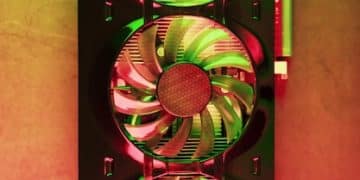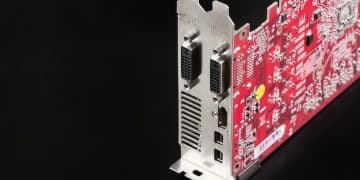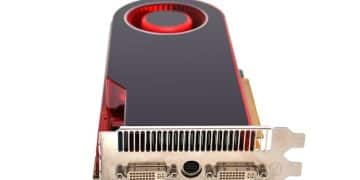Maximize FPS: RAM Speed Optimization for Ryzen 7000 Gaming PCs
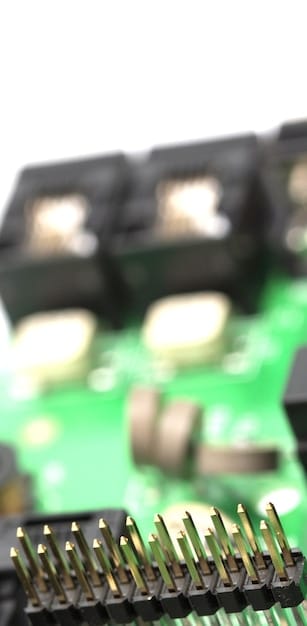
Optimizing RAM speed is crucial for maximizing FPS in Ryzen 7000 series gaming PC builds by ensuring the CPU can efficiently access and process data, reducing bottlenecks and improving overall gaming performance.
Want smoother gameplay on your Ryzen 7000 series gaming PC? Optimizing your RAM speed is key to unlocking maximum frames per second (FPS) and a more immersive gaming experience.
Understanding RAM Speed and Its Impact on Gaming
RAM, or Random Access Memory, plays a vital role in gaming PC performance. Its speed, measured in MHz (megahertz), determines how quickly your CPU can access the data it needs. In a gaming PC, faster RAM can translate to higher FPS and smoother gameplay, especially when paired with a powerful CPU like the Ryzen 7000 series.
The Role of RAM in Gaming
RAM acts as short-term memory for your CPU, storing data and instructions that are actively being used. When you’re gaming, the game’s textures, models, and other assets are loaded into RAM. The faster your RAM, the quicker your CPU can access this data, reducing loading times and minimizing stuttering.
Why RAM Speed Matters for Ryzen 7000
Ryzen 7000 series processors benefit significantly from faster RAM due to their architecture. The Infinity Fabric, which connects the CPU cores, is tied to the RAM speed. Faster RAM allows the Infinity Fabric to operate at a higher clock speed, improving communication between the cores and boosting overall performance.
- Faster RAM reduces latency and improves data transfer rates.
- It allows the CPU to access game assets more quickly.
- Optimized RAM speed enhances the responsiveness of the entire system.
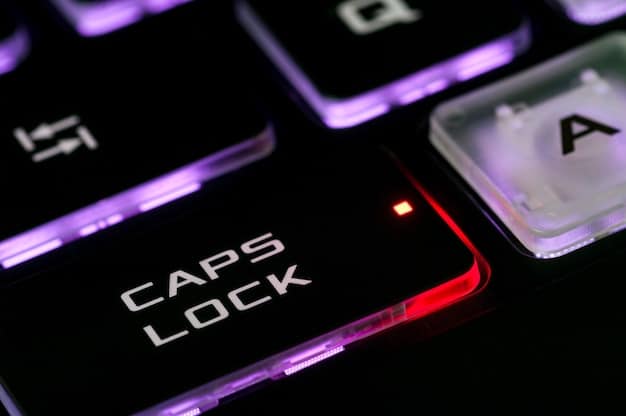
In summary, understanding the relationship between RAM speed and CPU performance is essential for optimizing your gaming experience on Ryzen 7000 series processors.
Choosing the Right RAM Speed for Your Ryzen 7000 Build
Selecting the correct RAM speed for your Ryzen 7000 gaming PC involves considering several factors, including your budget, motherboard compatibility, and the specific games you play. While faster RAM generally leads to better performance, there’s a point of diminishing returns where the cost outweighs the benefits.
Optimal RAM Speed for Ryzen 7000
For Ryzen 7000 series processors, the sweet spot for RAM speed is typically between 6000MHz and 6400MHz. These speeds offer a significant performance boost compared to slower RAM, without breaking the bank. However, it’s essential to ensure that your motherboard supports these speeds.
Motherboard Compatibility
Before purchasing RAM, check your motherboard’s specifications to ensure it supports the desired speed. Motherboards have a QVL (Qualified Vendor List) that lists the RAM modules that have been tested and verified to work correctly. Using RAM that’s not on the QVL doesn’t necessarily mean it won’t work, but it increases the risk of compatibility issues.
- Consult your motherboard’s manual for supported RAM speeds.
- Check the QVL for tested and verified RAM modules.
- Consider the number of RAM slots and the maximum supported capacity.
By carefully considering these factors, you can choose the right RAM speed for your Ryzen 7000 build, balancing performance and cost effectively.
How to Enable XMP for Optimal RAM Performance
Once you’ve installed your RAM, enabling XMP (Extreme Memory Profile) is crucial to achieve its advertised speeds. XMP is a pre-defined profile that contains the optimal timings and voltages for your RAM. Enabling it in your BIOS ensures that your RAM runs at its full potential.
Accessing the BIOS
To enable XMP, you’ll need to access your BIOS settings. This is typically done by pressing a specific key during the boot process, such as Delete, F2, or F12. The key varies depending on your motherboard manufacturer, so consult your motherboard’s manual for instructions.
Enabling XMP
Once you’re in the BIOS, navigate to the section that deals with memory settings. This may be labeled as “Overclocking,” “Advanced,” or “Memory Configuration.” Look for the XMP option and enable it. The BIOS should automatically configure the RAM to its advertised speed and timings.
- Enter BIOS during startup (usually by pressing Delete, F2, or F12).
- Locate the XMP setting in the BIOS menu.
- Enable XMP to automatically configure RAM settings.
- Save the changes and exit the BIOS.
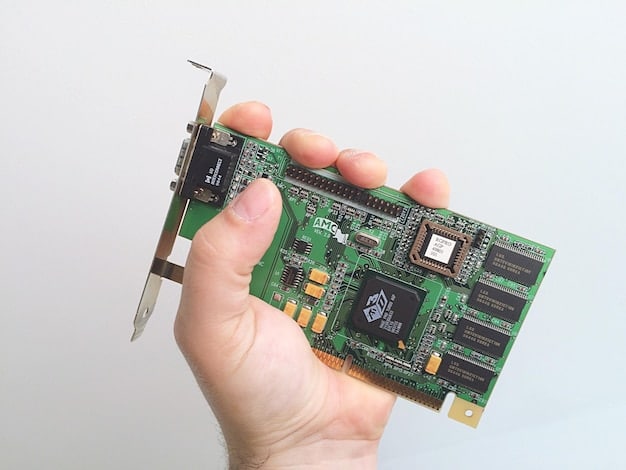
Enabling XMP is a simple but essential step to ensure that your RAM performs as expected, maximizing your gaming PC’s potential.
Troubleshooting RAM Speed Issues on Ryzen 7000
Even with the right RAM and XMP enabled, you might encounter issues with RAM speed on your Ryzen 7000 build. These issues can manifest as system instability, crashes, or lower-than-expected performance. Troubleshooting these problems involves several steps.
Verifying RAM Speed
First, verify that your RAM is running at the correct speed. You can do this using software like CPU-Z or the Windows Task Manager. If the reported speed is lower than the advertised speed, XMP may not be enabled correctly, or there might be compatibility issues.
Testing RAM Stability
If your system is unstable, use a memory testing tool like Memtest86 to check for errors. This tool runs outside of Windows and can identify faulty RAM modules. If Memtest86 reports errors, you may need to replace your RAM.
- Use CPU-Z or Task Manager to verify RAM speed.
- Run Memtest86 to check for RAM errors.
- Ensure RAM modules are properly seated in the DIMM slots.
By systematically troubleshooting RAM speed issues, you can identify and resolve problems, ensuring a stable and high-performing gaming PC.
The Impact of RAM Capacity on Gaming with Ryzen 7000
While RAM speed is crucial, RAM capacity also plays a significant role in gaming performance. Insufficient RAM can lead to stuttering, lag, and even crashes, especially in modern games with high memory requirements. Determining the right amount of RAM for your Ryzen 7000 build is essential.
Minimum RAM Requirements for Gaming
For most modern games, 16GB of RAM is the minimum recommended amount. This provides enough memory to handle the game’s assets, operating system, and background applications. However, some games may benefit from even more RAM.
Optimal RAM Capacity for Ryzen 7000 Gaming
For a high-end Ryzen 7000 gaming PC, 32GB of RAM is often the sweet spot. This allows you to run multiple applications simultaneously without impacting gaming performance. It also provides headroom for future games with higher memory requirements.
- 16GB is the minimum for most modern games.
- 32GB is ideal for high-end gaming and multitasking.
- Consider 64GB for extreme gaming and content creation.
Balancing Speed and Capacity
When choosing RAM, it’s important to balance speed and capacity. While faster RAM can improve performance, having enough RAM to handle the game’s assets is equally important. Aim for a balance that meets your budget and performance goals.
In conclusion, optimizing RAM capacity, along with speed, is crucial for maximizing gaming performance on your Ryzen 7000 series PC.
Future-Proofing Your RAM for Ryzen 7000
As games continue to evolve, their hardware requirements will increase. Future-proofing your RAM for your Ryzen 7000 build involves planning for these future demands. Investing in high-quality RAM now can save you the hassle of upgrading later.
Consider DDR5 Technology
Ryzen 7000 series processors use DDR5 RAM, which offers significantly higher speeds and bandwidth compared to DDR4. When choosing RAM, opt for DDR5 modules with high speeds and low latency to ensure optimal performance for years to come.
Plan for Future Upgrades
Even if 32GB of RAM is sufficient for current games, consider the possibility of future upgrades. Choose a motherboard with enough RAM slots to accommodate additional modules if needed. This will allow you to easily increase your RAM capacity as game requirements evolve.
- Choose DDR5 RAM for optimal performance.
- Select high-speed, low-latency RAM modules.
- Ensure your motherboard has enough RAM slots for future upgrades.
By carefully considering these factors, you can future-proof your RAM for your Ryzen 7000 build, ensuring that your gaming PC remains competitive for years to come.
| Key Point | Brief Description |
|---|---|
| 🚀 RAM Speed Importance | Faster RAM enhances data access, reducing lag and improving FPS. |
| ⚙️ Enabling XMP | XMP profiles unlock the advertised RAM speeds easily via BIOS. |
| 💾 RAM Capacity | 32GB is optimal for gaming, but 16GB is a viable minimum. |
| 🛡️ Future-Proofing | DDR5 and a motherboard with upgradeable slots help ensure longevity. |
FAQ
▼
RAM speed, measured in MHz, affects how quickly your CPU accesses data. Faster RAM reduces latency and improves data transfer, leading to smoother gameplay and higher FPS.
▼
Enter your BIOS settings during startup, find the XMP option (usually in overclocking or memory settings), and enable it. This automatically sets your RAM to its advertised speed.
▼
The sweet spot is between 6000MHz and 6400MHz. These speeds offer a balance of performance and cost-effectiveness for Ryzen 7000 gaming builds.
▼
16GB of RAM is the minimum for most modern games. However, 32GB is recommended for high-end gaming and multitasking.
▼
First, ensure XMP is enabled in your BIOS. If the issue persists, check your motherboard’s QVL list or test your RAM for errors using Memtest86.
Conclusion
Optimizing RAM speed is a critical step in maximizing the gaming performance of your Ryzen 7000 series PC. By choosing the right RAM, enabling XMP, and troubleshooting any issues, you can unlock higher FPS and a smoother, more immersive gaming experience.

